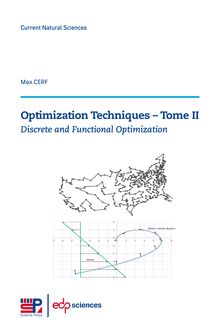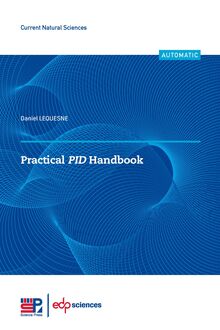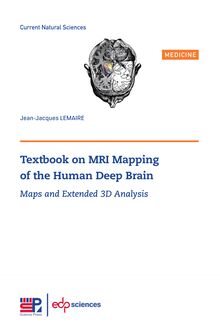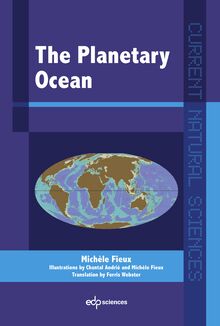-
 Univers
Univers
-
 Ebooks
Ebooks
-
 Livres audio
Livres audio
-
 Presse
Presse
-
 Podcasts
Podcasts
-
 BD
BD
-
 Documents
Documents
-
- Cours
- Révisions
- Ressources pédagogiques
- Sciences de l’éducation
- Manuels scolaires
- Langues
- Travaux de classe
- Annales de BEP
- Etudes supérieures
- Maternelle et primaire
- Fiches de lecture
- Orientation scolaire
- Méthodologie
- Corrigés de devoir
- Annales d’examens et concours
- Annales du bac
- Annales du brevet
- Rapports de stage
La lecture à portée de main
Découvre YouScribe en t'inscrivant gratuitement
Je m'inscrisDécouvre YouScribe en t'inscrivant gratuitement
Je m'inscrisEn savoir plus
En savoir plus

Description
The description of ocean water masses is based on the study of their temperature, salinity, and density, virtual genetic imprints which provide identity and movement to water masses. Ocean characteristics and processes involved in exchanges with the atmosphere together with simple dynamic balances give an understanding of a large part of the vast oceanic system.
This book is enhanced with numerous colored illustrations. It is a reference on regional oceanography updated with extensive results from the last twenty years. The presentation underscores the specificity of each ocean basin using a precise and global approach. Beginning with a brief historical context, it explains the interactions and the role of each ocean basin in the functioning of the planetary ocean. How do we recognize Antarctic Bottom Water in the middle of the Atlantic Ocean? What is the densest water mass? The warmest? Why doesn’t dense water form in the largest ocean basin? What becomes of water that sinks in the Labrador Sea? Why does the ocean play such an important role in climate variations? … Answers can be found in this book.
Beyond a course in regional oceanography, the text is aimed at students in all fields of marine and environmental science as well as interested secondary school teachers. It also provides a guide to exploring the «ocean planet» that is comprehensible to any well-informed amateur eager to know the basics.
Sujets
Informations
| Publié par | EDP Sciences |
| Date de parution | 31 août 2017 |
| Nombre de lectures | 0 |
| EAN13 | 9782759821501 |
| Langue | English |
| Poids de l'ouvrage | 99 Mo |
Informations légales : prix de location à la page 1,0900€. Cette information est donnée uniquement à titre indicatif conformément à la législation en vigueur.
Extrait
CURRENT NATURAL SCIENCES
CURRENT NATURAL SCIENCES
M. Fieux
The Planetary Ocean
CURRENT NATURAL SCIENCES
The Planetary Ocean
Michèle Fieux
The Planetary
he description of ocean water masses is based on the study of their temperature,
salinity, and density, virtual genetic imprints which provide identity and movement T to water masses. Ocean characteristics and processes involved in exchanges with the
atmosphere together with simple dynamic balances give an understanding of a large part Ocean
of the vast oceanic system.
This book is enhanced with numerous colored illustrations. It is a reference on regional
oceanography updated with extensive results from the last twenty years. The presentation
underscores the speci city of each ocean basin using a precise and global approach.
Beginning with a brief historical context, it explains the interactions and the role of each ocean
basin in the functioning of the planetary ocean. How do we recognize Antarctic Bottom Water
in the middle of the Atlantic Ocean? What is the densest water mass? The warmest? Why
doesn’t dense water form in the largest ocean basin? What becomes of water that sinks in
the Labrador Sea? Why does the ocean play such an important role in climate variations? …
Answers can be found in this book.
Beyond a course in regional oceanography, the text is aimed at students in all elds of marine
and environmental science as well as interested secondary school teachers. It also provides a
guide to exploring the «ocean planet» that is comprehensible to any well-informed amateur
eager to know the basics.
Michèle Fieux is professor of regional oceanography at the École Nationale Supérieure des
Techniques Avancées in Paris and member of the Marine Academy. Her lifework at the CNRS
allowed her to live her passion through ocean research and by leading numerous oceanographic
cruises. In the seventies, working with Henry Stommel had a great in uence on her career.
Ferris Webster received a PhD in Geophysics at the Massachusetts Institute of Technology, then
Michèle Fieuxhis career took him to the Woods Hole Oceanographic Institution, the US National Oceanic and
Illustrations by Chantal Andrié and Michèle FieuxAtmospheric Administration, and the College of Earth, Ocean, and Environment of the University
of Delaware, where he is currently Professor Emeritus. Translation by Ferris Webster
89 €
www.edpsciences.org 9782759 820702 EDP Sciences : 978-2-7598-2070-2
9782759820702_Plan_Ocean.indd 1 01/06/2017 18:01Michèle Fieux
The Planetary Ocean
Illustrations by Chantal Andrié and Michèle Fieux
Translation by Ferris Webster
CURRENT NATURAL SCIENCES
EDP SciencesCover illustration: The planetary ocean.
Printed in France
© 2017, EDP Sciences , 17 avenue du Hoggar, BP 112, Parc d’activités
de Courtabœuf, 91944 Les Ulis Cedex A
This work is subject to copyright. All rights are reserved, whether the whole
or part of the material is concerned, specifically the rights of translation,
reprinting, re-use of illustrations, recitation, broad-casting, reproduction on
microfilms or in other ways, and storage in data bank. Duplication of this
publication or parts thereof is only permitted under the provisions of the
French Copyright law of March 11, 1957. Violations fall under the prosecution
act of the French Copyright law.
ISBN (print): 978-2-7598-2070-2 - ISBN (ebook): 978-2-7598-2150-160˚N
30˚N
Atlantic
Ocean
Pacific Ocean
EQ
90˚W 0˚ 90˚E 180˚E
Indian
Ocean
30˚S
500
2000 Antarctic Ocean
4000
60˚S
6000
m
Ocean Data ViewTable of Contents
Prolog 1
Preface to the French Edition 3
Acknowledgments 5
Introduction 9
I. Generalities
1 Ocean characteristics 15
1.1 Spatial c ................................ 15
1.2 Physical characteristics of pure water ..................... 19
1.3 Chemical and physical properties of seawater ................ 20
2 Heat and water exchanges between ocean and atmosphere 25
2.1 Global radiation balance .............................. 25
2.1.1 Incident solar radiation and albedo .................. 26
2.1.2 Absorption of incident radiation .................... 27
2.1.3 The greenhouse effect ........................... 27
2.1.4 Long-wave (infrared) radiation ..................... 27
2.1.5 Evaporation and conduction ...................... 28
2.1.6 Radiative balance 29
2.2 Distribution of ocean-atmosphere heat fluxes ................ 30
2.2.1 Solar radiation ................................ 30
2.2.2 Heat loss by infrared radiation 31
2.2.3 y evaporation ......................... 32
2.2.4 y conduction .......................... 32
2.2.5 Net heat flux ................................. 34
2.3 Atmosphere and ocean heat transport ..................... 35
2.4 Ocean surface temperature ............................ 37
2.5 Water fluxes ....................................... 39
2.5.1 Evaporation and precipitation 39
2.5.2 Water flux balance ............................. 42
2.6 Surface salinity ..................................... 42
2.7 Surface density 43
2.8 Heat and salt transfers to the ocean interior. The thermocline .... 44
3 Water masses 51
3.1 General properties of water masses ....................... 51
VI The Planetary Ocean
3.2 Mode Waters, Central Waters, and Intermediate Waters ........ 52
3.3 Bottom Waters and Deep Waters ........................ 55
3.4 Analysis of water characteristics ......................... 56
3.4.1 Potential temperature and potential densit ...........y 57
3.4.2 Potenerature-salinity diagram ............... 58
3.4.3 Tracers ..................................... 62
4 Ocean circulation 65
4.1 Laws controlling oceanic motion ......................... 65
4.2 The effect of Earth rotation on motion; the Coriolis force ....... 66
4.3 Geostrophy: the principal balance of forces in the ocean ........ 70
4.4 The dynamic method ................................ 74
4.5 Dynamic topography ................................. 77
4.6 Thermohaline circulation .............................. 78
5 The role of wind 81
5.1 Oceanic and atmospheric surface circulation ................ 81
5.2 Local wind effects: Ekman transport ...................... 85
5.2.1 Wind acting near a coastline: coastal upwelling ......... 89
5.2.2 Wind at the equator: equatorial upwelling,
Equatorial Undercurren .........................t 91
5.3 Large-scale wind effects ............................... 93
5.3.1 Ekman pumping 93
5.3.2 Sverdrup balance .............................. 98
5.3.3 Western intensification of ocean currents .............. 100
5.3.4 Conservation of potential vorticit ..................y 102
6 Observational techniques 105
6.1 Temperature and salinity measuremen ...................ts 105
6.1.1 Reversing thermometers ......................... 105
6.1.2 Bathythermograph ............................. 107
6.1.3 Expendable bathythermograph, or XBT .............. 108
6.1.4 Salinometer .................................. 110
6.1.5 Thermosalinograph 110
6.2 The hydrographic station and its measurements 110
6.2.1 Knudsen, Nansen, and Niskin sample bottles ........... 111
6.2.2 CTD probe and rosette .......................... 112
6.3 Direct current measurements ........................... 117
6.3.1 Current meters ................................ 117
6.3.2 Acoustic Doppler current profilers .................. 119
6.3.3 Moored current meters 122
6.3.4 Surface-moored buoy ............................ 126
6.4 Drifting buoys, floats, profilers, gliders .................... 127
6.4.1 Drifting buoys 127
6.4.2 Swallow floats and SOFAR floats ................... 129
6.4.3 Profiling floats 130
6.4.4 Gliders ..................................... 131
6.4.5 Animal-borne instruments: How elephant seals can help
exploring the ocean ............................. 132
6.5 Satellite measurements ............................... 134
Table of Contents VII
II. The Antarctic (or Austral) Ocean
1Introduction 139
2 Geographic characteristics 145
3 Atmospheric pressure and winds 151
4 Climatology 155
4.1 Glaciers and ice pac ................................k 155
4.1.1 Continental glaciers, ice shelv ....................es 155
4.1.2 The ice pack .................................. 157
4.1.3 Polynyas .................................... 159
4.2 Precipitation ...................................... 161
5 Surface circulation 163
5.1 The Antarctic Circumpolar Curren ......................t 163
5.2 t and oceanic fronts ......... 167
5.2.1 The Subtropical Front and the Subantarctic Zone ....... 169
5.2.2 The Subantarctic Front and the Polar Frontal Zone ...... 170
5.2.3 The Polar Front, the Antarctic Zone, and the Southern
Antarctic Circumpolar Current Front ................ 172
5.2.4 The Southern Zone, the Southern Boundary
and the Antarctic Divergence ...................... 172
5.2.5 The role of topography in the Circumpolar Current ...... 173
5.3 The Periantarctic Coastal Curren .......................t 174
6 Water properties 177
6.1 Surface temperature ................................. 177
6.2 Salinity .......................................... 177
6.3 Antarctic Ocean Water Masses .......................... 180
6.3.1 Antarctic Circumpolar Deep Water .................. 184
6.3.2 Antarctic Intermediate Water and Subantarctic
Mode Water .................................. 189
6.3.3 Bottom Water and Deep Water in the Weddell Sea ...... 191
6.3.4 Antarctic Bottom Water ......................... 195
7 Distinctive features of the Antarctic Ocean 201
III. The Atlantic Ocean
1 Introduction 205
2 Geographic characteristics 209
3 Climatology 213
3.1 Pressure and winds .................................. 213
3.2 Precipitation and evaporation .......................... 216
4 Surface and subsurface circulation 219
4.1 The equatorial current system 220
4.1.1 The North Equatorial Current ..................... 221
4.1.2 The South Equatorial Current and the North Brazil
Current ...................................
-
 Univers
Univers
-
 Ebooks
Ebooks
-
 Livres audio
Livres audio
-
 Presse
Presse
-
 Podcasts
Podcasts
-
 BD
BD
-
 Documents
Documents
-
Jeunesse
-
Littérature
-
Ressources professionnelles
-
Santé et bien-être
-
Savoirs
-
Education
-
Loisirs et hobbies
-
Art, musique et cinéma
-
Actualité et débat de société
-
Jeunesse
-
Littérature
-
Ressources professionnelles
-
Santé et bien-être
-
Savoirs
-
Education
-
Loisirs et hobbies
-
Art, musique et cinéma
-
Actualité et débat de société
-
Actualités
-
Lifestyle
-
Presse jeunesse
-
Presse professionnelle
-
Pratique
-
Presse sportive
-
Presse internationale
-
Culture & Médias
-
Action et Aventures
-
Science-fiction et Fantasy
-
Société
-
Jeunesse
-
Littérature
-
Ressources professionnelles
-
Santé et bien-être
-
Savoirs
-
Education
-
Loisirs et hobbies
-
Art, musique et cinéma
-
Actualité et débat de société
- Cours
- Révisions
- Ressources pédagogiques
- Sciences de l’éducation
- Manuels scolaires
- Langues
- Travaux de classe
- Annales de BEP
- Etudes supérieures
- Maternelle et primaire
- Fiches de lecture
- Orientation scolaire
- Méthodologie
- Corrigés de devoir
- Annales d’examens et concours
- Annales du bac
- Annales du brevet
- Rapports de stage




















